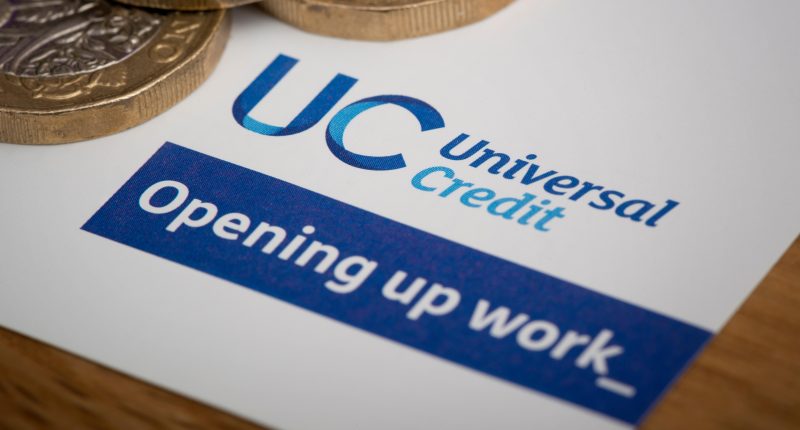A MAJOR Universal Credit shake-up could see more than half a million households lose their benefits worth £390.
It’s feared that 520,000 people could have their limited capability for work and work-related activity (LCWRA) payments stopped, according to the Institute for Fiscal Studies (IFS).
Households eligible for LCWRA payments usually have a health condition which prevents or limits their ability to work.
These face losing £390 each month, which is the typical amount awarded to people who have a limited capability for work.
Under new government plans, work capability assessments will be scrapped and LCWRA replaced by a new Universal Credit ‘Health Element’.
But to qualify, households would need to meet the eligibility criteria for personal independent payments (PIP).
READ MORE IN MONEY
Right now, these claimants have to undergo a work capability assessment (WCA) to decide whether they’re capable of working and if they’re eligible for the free top-up.
But in the future, PIP assessments which are already separate from WCAs will be used to assess if someone is eligible for the new Health Element.
This means that more half a million households not claiming PIP could be deemed ineligible for the extra cash.
These plans are still a way off, and the legislation isn’t expected to pass through Parliament until the 2026/27 financial year.
Most read in Money
Among those affected will be people who have a health condition that is deemed to limit their ability to work, but is not deemed to add significant extra costs to daily living, such as those suffering from severe anxiety, the IFS said.
Sam Ray-Chaudhuri, a research economist at the IFS – an economic research institute based in London – and an author of the report, said: “The government proposes moving to a system where being unable to work will no longer directly confer any additional financial support from the benefits system.”
PIP is available for those aged 16 or over who have not reached the state pension age.
The benefit can be worth up to £156.90 a week, so it’s worth checking if you can make a claim.
To qualify, you have to have a health condition or disability where you either have had difficulties with daily living or getting around (or both) for three months.
The DWP previously confirmed to The Sun that it will provide new detail on how these claimants can access the new Universal Credit health top-up if they’re not in receipt of PIP if the proposals go ahead at a later date.
What’s happening to LCWRA payments?
The Government will axe both work capability assessments (WCAs) and limited capability for work and work-related activity (LCWRA) payments.
LCWRA payments will be replaced by a new Universal Credit “Health Element” which will automatically be given to those claiming personal independence payments (PIP).
PIP comes with its own separate health assessment and this will be used to confirm a Universal Credit claimant’s eligibility for the new Health Element.
Those who don’t claim pip but do get LCWRA payments will receive “transitional protection” when the payments are scrapped by the Government.
This is an extra “transitional” amount of money which tops up your Universal Credit award so you’re not substantially worse off when you move across.
But for now, it remains unclear how they’ll then receive the Universal Credit Health Element after these transitional payments stop unless they launch a successful claim for PIP.
When will the changes take place?
The government published a Health and Disability White Paper on the same day the Chancellor delivered his Spring Budget.
The scrapping of WCAs and LCWRA payments form part of this White Paper and will need to be presented to Parliament after a consultation process before it comes into law.
The legislation is expected to pass through Parliament in the 2026/27 financial year.
It will then take three years to roll out the new proposals which are expected to be completed by 2029.
What can I do in the meantime?
If you receive Universal Credit and LCWRA payments it’s still worth checking if you’re eligible for PIP because you can claim both.
The payments can be worth up to £156.90 a week, so if you don’t claim already it’s well worth seeing if you’re eligible.
PIP is available to those aged 16 or over but not yet at the state pension age.
Crucially, you must also have a health condition or disability where you either have had difficulties with daily living or getting around (or both) for three months, and you expect these difficulties to continue for at least nine months (unless you’re terminally ill with less than six months to live).
Difficulties with daily living can include:
- Preparing or eating food
- Washing, bathing and using the toilet
- Dressing and undressing
- Reading and communicating
- Managing your medicines or treatments
- Making decisions about money
- Engaging with other people
You can claim PIP at the same time as other benefits, except the armed forces’ independence payment.
PIP is made up of two parts and whether you get one or both of these depends on how severely your condition affects you.
How much you get also depends on how your condition affects you.
You may get the mobility part of PIP if you need help going out or moving around. The weekly rate for this is either £24.45 or £64.50.
While on the daily living part of PIP, the weekly rate is either £61.85 or £92.40 – and you could get both elements, so up to £156.90 in total.
You’ll be assessed by a health professional to work out the level of help you can get and your rate will be regularly reviewed to make sure you’re getting the right support.
You can make a new Personal Independence Payment (PIP) claim by calling the Department for Work and Pensions (DWP) on 0800 917 2222.
When you claim, you’ll need:
- Your contact details
- Date of birth
- National Insurance number
- Bank or building society account number and sort code
- Your doctor or health worker’s name, address and telephone number
- Dates and addresses for any time you’ve spent abroad, in a care home or hospital
Someone else can call on your behalf, but you’ll need to be with them when they call.
Read More on The Sun
You’ll then be sent a form to fill in, after which you’ll be invited for an assessment or your health or social care worker will be asked for information.
After this, you’ll be sent a letter telling you if your claim has been successful.
Do you have a money problem that needs sorting? Get in touch by emailing [email protected].
You can also join our new Sun Money Facebook group to share stories and tips and engage with the consumer team and other group members.










